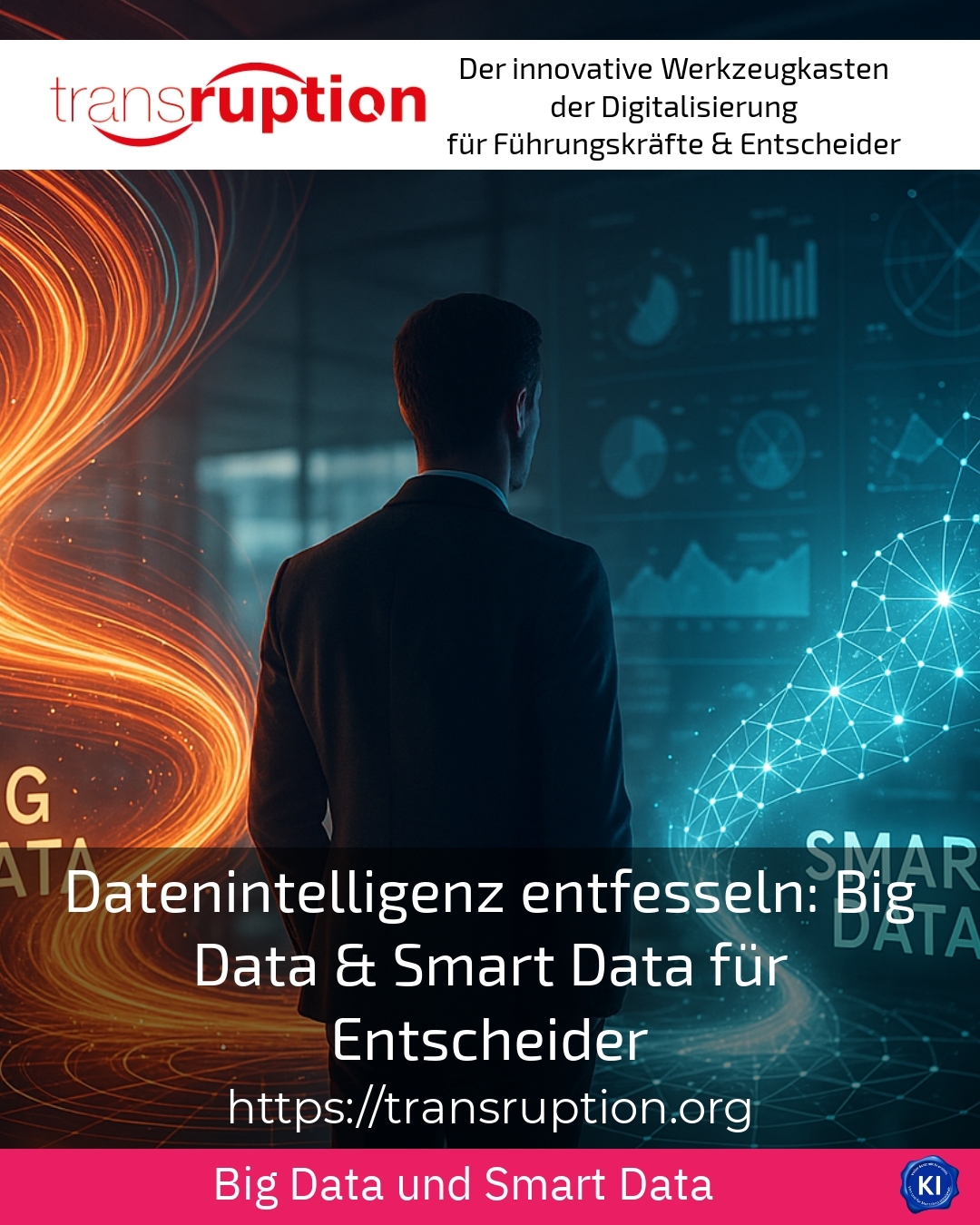In today's economic landscape Data intelligence indispensable for sustainable success. Companies receive huge amounts of data every day - so-called big data - which is of little value on its own. The decisive factor is the ability to refine this data and convert it into Smart Data to transform it. The targeted application of data intelligence is the only way to gain valuable insights that help decision-makers to act strategically and agilely.
Data intelligence - understanding more than just data volumes
Big data stands for the enormous amount of different data - from customer data to machine sensors and transactions. The sheer volume of data makes it unmanageable for manual analyses. This is where data intelligence comes in to filter out the really relevant information from the raw sea of data.
An example from the manufacturing industry shows how data intelligence is utilised: Machines generate permanent sensor data. An intelligent system continuously analyses this data, detects deviations at an early stage and prevents costly breakdowns through predictive maintenance. An e-commerce company that uses data intelligence to analyse purchasing behaviour in order to adapt the product range and marketing campaigns precisely to the needs of individual customer segments benefits in a similar way.
In the financial sector, portfolio managers are increasingly basing their decisions on smartly analysed data instead of unstructured, confusing floods of information. This increases the reliability and efficiency of their strategies.
From big data to smart data: the quality of the information counts
Big data emphasises quantity, but data intelligence focuses on quality. Smart data are specifically selected, cleansed and interpretable data volumes that serve the specific business objective. By using artificial intelligence and machine learning algorithms, irrelevant data is excluded and only valuable findings are emphasised.
An example from marketing illustrates this impressively: instead of broad wastage, a company uses data-intelligent systems that provide target group analyses in real time. In this way, advertising campaigns are flexibly adapted to customer preferences and sales are increased.
The combination of big data and smart data also plays a major role in logistics: the intelligent processing of large volumes of data enables bottlenecks to be recognised at an early stage and supply chains to be managed more efficiently. This saves costs and improves customer satisfaction.
This shift from the sheer volume of data to smart, targeted information not only makes the work of specialist departments easier, but also gives managers the impetus they need to make better and faster decisions.
Fields of application for data intelligence in various industries
Data intelligence is effective across all industries and adapts flexibly to the respective requirements:
- In the healthcare sector, patient data from various sources - such as electronic medical records, diagnostic devices and wearables - is linked and analysed. This results in individualised therapy approaches and better treatment outcomes.
- In the manufacturing industry, companies use data intelligence to analyse key production figures, thereby optimising processes and minimising waste. Intelligent data processing also helps to avoid unplanned downtime.
- In retail, precise customer analyses enable targeted advertising campaigns and personalisation along the entire customer journey. This benefits customer loyalty and sales in the long term.
BEST PRACTICE at the customer (name hidden due to NDA contract) A logistics company used data-intelligent processes to extract precise KPIs from extensive sensor and transport data. This made it possible to reliably forecast delivery times and efficiently manage stock levels. This led to significant cost savings and improved customer satisfaction.
BEST PRACTICE at the customer (name hidden due to NDA contract) A marketing agency used data-intelligent systems to adapt campaigns to the behaviour of user groups in real time. The resulting flexibility reduced wastage and measurably increased the advertising impact, which was reflected in a higher sales rate.
These examples illustrate how diverse and effective data-intelligent approaches can be - regardless of the industry.
Data intelligence as the key to well-founded decisions
Data intelligence supports decision-makers in complex projects by recognising risks at an early stage and making opportunities visible. The combination of big data and smart data thus creates a solid decision-making basis for action-orientated results.
In manufacturing, for example, a data-intelligent solution can permanently monitor the production status and report inconsistencies. In marketing, smart data can be used to address target groups in a more differentiated way and manage campaigns more precisely. In the healthcare sector, intelligent data analyses enable the preparation of personalised therapies, which is often welcomed by doctors and patients alike.
My analysis
The importance of Data intelligence in modern companies is constantly growing. Only those who manage to generate relevant smart data from the huge variety of big data can make well-founded and future-proof decisions. The intelligent use of data acts as an important lever for optimising processes, increasing efficiency and opening up new business opportunities.
Managers who rely on data-intelligent strategies benefit from measurable advantages, for example through improved forecasting, a more personalised customer approach and more efficient use of resources. It is not about having as much data as possible, but about the quality and contextualisation of the information.
Companies should therefore view data intelligence as an accompanying process that supports them in the transformation of their data worlds and provides valuable impetus for growth and innovation.
Further links from the text above:
From big data to smart data with data intelligence
Big data vs. smart data - quality instead of quantity
Smart data: definition, application and benefits
Big and smart data - from statistics to data analysis
For more information and if you have any questions, please contact Contact us or read more blog posts on the topic TRANSRUPTION here.















